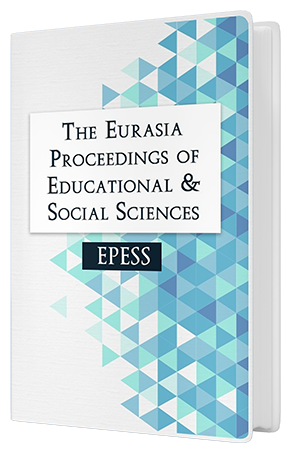FLOW Theory in the Preparation of Vocational Subjects Teachers
Keywords:
Flow theory, Motivation, Educational goalsAbstract
The contribution deals with the FLOW theory of Czikszentmihaly. This theory is already well known in the professional psychological public. The FLOW theory is one of the main ways of achieving the so-called optimal highly focused mental state or optimal experience. According to its author, it depends on the ability of having control, at any moment, over what is happening in individual consciousness. It is one of the main determinants of what is simply referred to the term "happy and fulfilled life." The optimal experience is not the gift of being, it is the result of a purposeful, subjective effort of an individual. Life in the family may be the first impulse for identifying the path of the FLOW. The second, equally meaningful impulse should be the school or teachers and their educational activities. In order to successfully influence pupils in this area, the teachers need to focus themselves to FLOW issues. The authors of this article see a positive transfer of FLOW theory especially in realistically defined training and educational goals. The goals of the lesson have to be set to develop and respond to the quality of pupils' thinking logic. At the same time, there must be a significant motivational impulse to the action. And especially „the absorption" of the individual by subjective activity is a meaningful outcome of FLOW within the teaching process. Teaching and learning is a complicated and complex process. The versatility of this process results in the one hand, a wide range of scientific disciplines dealing with these notions (e.g. psychology, pedagogy, philosophy, biology, medicine, sociology, cybernetics, and the like) in the other hand a wide range of definitions, attempting to identify phenomena accompanying this multi-aspect and multi-factor process.Downloads
Published
Issue
Section
License
Copyright (c) 2019 The Eurasia Proceedings of Educational and Social Sciences

This work is licensed under a Creative Commons Attribution-NonCommercial-ShareAlike 4.0 International License.
The articles may be used for research, teaching, and private study purposes. Any substantial or systematic reproduction, redistribution, reselling, loan, sub-licensing, systematic supply, or distribution in any form to anyone is expressly forbidden. Authors alone are responsible for the contents of their articles. The journal owns the copyright of the articles. The publisher shall not be liable for any loss, actions, claims, proceedings, demand, or costs or damages whatsoever or howsoever caused arising directly or indirectly in connection with or arising out of the use of the research material. All authors are requested to disclose any actual or potential conflict of interest including any financial, personal or other relationships with other people or organizations regarding the submitted work.




